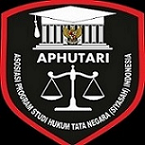Reformulation of Livelihood in Islamic Family Law: Qur’anic Basis and Women’s Dual Roles
Abstract
The study on the reformulation of the concept of nafaqah (financial support) in Islamic family law has become increasingly relevant amid the social and economic transformations brought about by the digital era and the expanding dual roles of women in both domestic and public spheres. This research aims to reanalyze the conceptual understanding of nafaqah based on the values of the Qur’an, taking into account the context of the digital economy and the transformation of modern family structures. The research employs a qualitative approach through library research, combining an analysis of classical texts in uṣūl al-fiqh and family fiqh with contemporary literature discussing maqāṣid al-sharīʿah and gender justice. The findings reveal that the concept of nafaqah in Islamic law encompasses interconnected moral, social, and economic dimensions. Normatively, nafaqah is the responsibility of the husband; however, within the context of the digital economy, this principle requires reinterpretation to align with the Qur’anic values of justice, reciprocity, and partnership. The integration of the principles of ḥifẓ al-māl (protection of wealth) and ḥifẓ al-nasl (protection of lineage) emphasizes that the reformulation of the concept of nafaqah is not merely a legal innovation but also part of a broader effort to preserve the welfare and sustainability of Muslim families in the modern era.
Keywords
Full Text:
PDFReferences
Aini, Masyhuri dan Nur. “Konsep Nafkah dalam Perspektif Hukum Islam dan Relevansinya di Era Digital.” Jurnal Al-Manhaj 4, no. 1 (2024): 45.
Al-Zuhayli, Wahbah. Ushul al-Fiqh al-Islami. Dār al-Fikr, 1996.
Astuti, Ayu Widya, Dea Nur Safitri, Althariqul Jannah, dkk. “Persepsi Masyarakat Terhadap Peran Ganda Pada.” Journals of Indonesian Multidisciplinary Research 3, no. 1 (2024): 7.
Auda, Jasser. Maqasid al-Shariah as Philosophy of Islamic Law: A Systems Approach. The International Institute of Islamic Thought, 2008.
Fahmi, Zainuddin dan. “Pembuktian Digital dalam Perkara Hukum Keluarga Islam di Indonesia.” Jurnal Hukum dan Syariah 13, no. 2 (2023): 71.
Hardianti, dan Nurchaliq Majid. “Rekonstruksi Konsep Nafkah Dalam Hukum Keluarga Islam: Perspektif Gender Dan Otonomi Perempuan.” USRAH: Jurnal Hukum Keluarga Islam 6, no. 3 (2025): 68–82. https://doi.org/10.46773/usrah.v6i3.1908.
Hayati, Fauziah. “Konsep Nafkah Dalam Islam: Kajian Literatur Terhadap Pemahaman Klasik Dan Pendekatan Ekonomi Syariah Modern.” Indonesian Journal of Islamic Jurisprudence, Economic and Legal Theory 2, no. 4 (2024): 2230–39. https://doi.org/10.62976/ijijel.v2i4.836.
Hidayat, Riyan Erwin, dan Muhammad Nur Fathoni. “Konsep Nafkah Menurut Muhammad Syahrur dan Kompilasi Hukum Islam.” Syakhshiyyah Jurnal Hukum Keluarga Islam 2, no. 2 (2022): 150–64. https://doi.org/10.32332/syakhshiyyah.v2i2.6139.
Idin, Andi Muhammad, dan Mustaming Mustaming. “Nafkah Dalam Konteks Hukum Islam.” MADDIKA : Journal of Islamic Family Law 4, no. 1 (2023): 48–56. https://doi.org/10.24256/maddika.v4i1.4837.
Ita Musarrofa, Husnul Muttaqin, Ridha Amaliyah. “The Problems of Islamic Family Law in the Digital Era Its Relevance to Renewal of the Compilation of Islamic Law .” Hukum Islam 22, no. 2 (2024): 93.
Masyhuri dan Nur Aini, “Konsep Nafkah dalam Perspektif Hukum Islam dan Relevansinya di Era Digital,” Jurnal Al-Manhaj 4, no. 1 (2024): hlm. 45.
M.Nur syafiuddin, Rachmad Safa’at, Prija Djatmika, Istislam. “Redefinition of Nafkah in the Pattern of Child Protection and the Formation of Family Problems in Indonesia.” International Journal of Nusantara Islam 9, no. 1 (2021): 215–22. https://doi.org/10.15575/ijni.v9i1.13186.
Muhyiddin, Muhyiddin. “Tinjauan Konsep Nafkah Di Era Digital Dalam Perspektif Imam Syafi‘I.” Isti`dal : Jurnal Studi Hukum Islam 7, no. 1 (2020): 79–100. https://doi.org/10.34001/istidal.v7i1.2576.
Mustafid. Hukum Keluarga: Perkawinan dalam Islam dan Adat. Tangguh Denaya Jaya, 2023.
Ridha Amaliyah Ita Musarrofa, Husnul Muttaqin, “The Problems of Islamic Family Law in the Digital Era Its Relevance to Renewal of the Compilation of Islamic Law ,” Hukum Islam 22, no. 2 (2024): hlm. 93.
Nelli, Jumni. “Working Wife’S Nafkah Family Law Perspective Indonesian Islam.” Eksekusi 5, no. 2 (2023): 220. https://doi.org/10.24014/je.v5i2.25924.
Ni Wayan Merda Surya Dewi. “Beban ganda perempuan yang bekerja akibat bias gender dalam uu perkawinan.” Hukum Saraswati 07, no. 02 (2025): 1001–11.
Nurfauzy Ahmad. Nafkah Keluarga Menurut Muhammad Quraish Shihab dalam Tafsir Al-Mishbah. Universitas Muhammadiyah Surakarta, 2021.
Nuroniyah, Wardah, Ilham Bustomi, dan Ahmad Nurfadilah. “Kewajiban Nafkah Dalam Keluarga Perspektif Husein Muhammad.” Mahkamah : Jurnal Kajian Hukum Islam 4, no. 1 (2019).
Qothrunnada, Qonita, Asy Syifak Qolbi Maghfur, dan Lina Kushidayati. “Examining Justice! The Double Burden of Women in Indonesia from the Perspective of The Compilation of Islamic Law.” Al-Ahkam: Jurnal Ilmu Syari’ah dan Hukum 9, no. 1 (2024): 61–74. https://doi.org/10.22515/alahkam.v9i1.9680.
Shihab, M. Quraish. Tafsir al-Mishbah: Pesan, Kesan, dan Keserasian al-Qur’an. Lentera Hati, 2008.
Toha Ma’arif. “Relevansi Konsep Nafkah dalam Hukum Keluarga Islam terhadap Dinamika Kehidupan Modern.” Al Fuadiy Jurnal Hukum Keluarga Islam 7, no. 2 (2025): 96–109. https://doi.org/10.55606/af.v7i2.1669.
Yani, Nurlinda. “Hak dan Nafkah Istri dalam Hukum Islam: Analisis Konsep Kesetaraan Gender.” Posita: Jurnal Hukum Keluarga Islam 2, no. 2 (2024): 95–106. https://doi.org/10.52029/pjhki.v2i2.233.
Zainuddin dan Fahmi, “Pembuktian Digital dalam Perkara Hukum Keluarga Islam di Indonesia,” Jurnal Hukum dan Syariah 13, no. 2 (2023): hlm. 71.
Zakaria, Samsul. “Nafkah dan Ketimpangan Gender (Analisis Nafkah dalam Kompilasi Hukum Islam).” Ijtihad 36, no. 2 (2020): 51–66.
DOI: https://doi.org/10.24952/el-thawalib.v6i5.17651
Refbacks
- There are currently no refbacks.









Editorial Office Board :
Kampus UIN Syekh Ali Hasan Ahmad Addary Padangsidimpuan
Jl. T Rizal Nurdin No.Km 4, RW.5, Sihitang, Padangsidimpuan Tenggara, Kota Padang Sidempuan, Sumatera Utara 22733
 Jurnal El-Thawalib is licensed under a Creative Commons Attribution-ShareAlike 4.0 International License.
Jurnal El-Thawalib is licensed under a Creative Commons Attribution-ShareAlike 4.0 International License.
View My Stats






